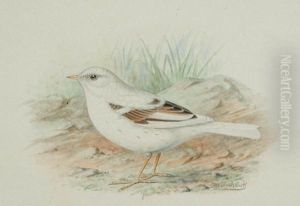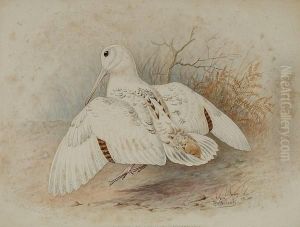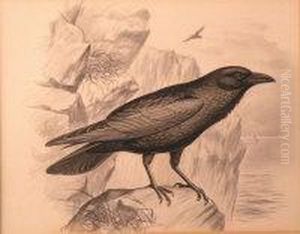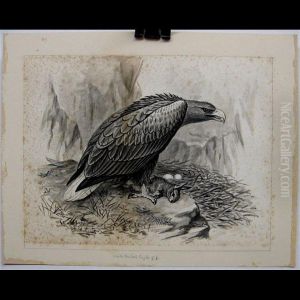Frederick William Frohawk Paintings
Frederick William Frohawk was born on July 16, 1861, in Norfolk, England, and developed an interest in natural history and art from a young age. He was largely self-taught as an artist, which is remarkable given the detail and accuracy of his work. Frohawk's career spanned over six decades, during which he became renowned for his contributions to ornithology and lepidopterology through his detailed illustrations of birds and butterflies. His work is notable for its scientific accuracy as well as its artistic beauty, making it valuable both to the scientific community and to art collectors.
Frohawk's most famous work is perhaps his complete life history of the British butterflies, published in two volumes in 1924, titled 'The Natural History of British Butterflies'. This comprehensive guide was groundbreaking at the time and remains a significant reference for lepidopterists today. In addition to butterflies, Frohawk also produced a notable body of work on birds. He was commissioned to illustrate numerous books and articles on ornithology, including 'The Birds of the British Isles' by Charles Stonham, showcasing his versatility and skill in depicting a wide range of species with precision and care.
Despite his contributions to the fields of ornithology and lepidopterology, Frohawk was not formally trained in either. His keen observations of nature, combined with his artistic talents, allowed him to make significant contributions to these fields. Beyond his published works, Frohawk's legacy includes a vast collection of watercolor paintings and drawings, many of which are held in museums and private collections.
Frohawk passed away on December 10, 1946. His work continues to be celebrated for its contribution to the understanding of British wildlife, and his illustrations have inspired generations of artists and naturalists. His dedication to his art and to nature conservation at a time when the environmental impact of human activities was becoming more apparent highlights his forward-thinking approach to the natural world. Frohawk's legacy is a testament to the power of art to contribute to scientific knowledge and conservation efforts.



